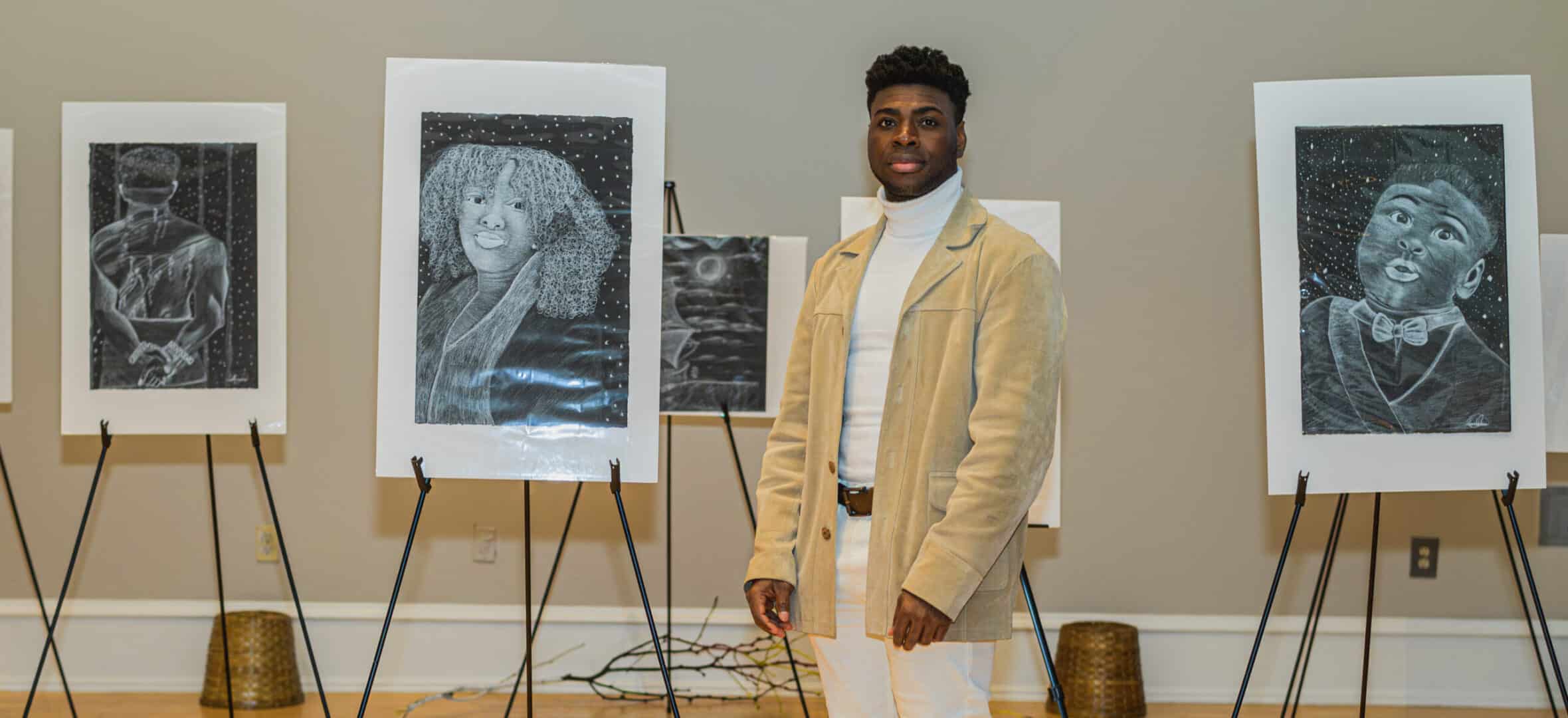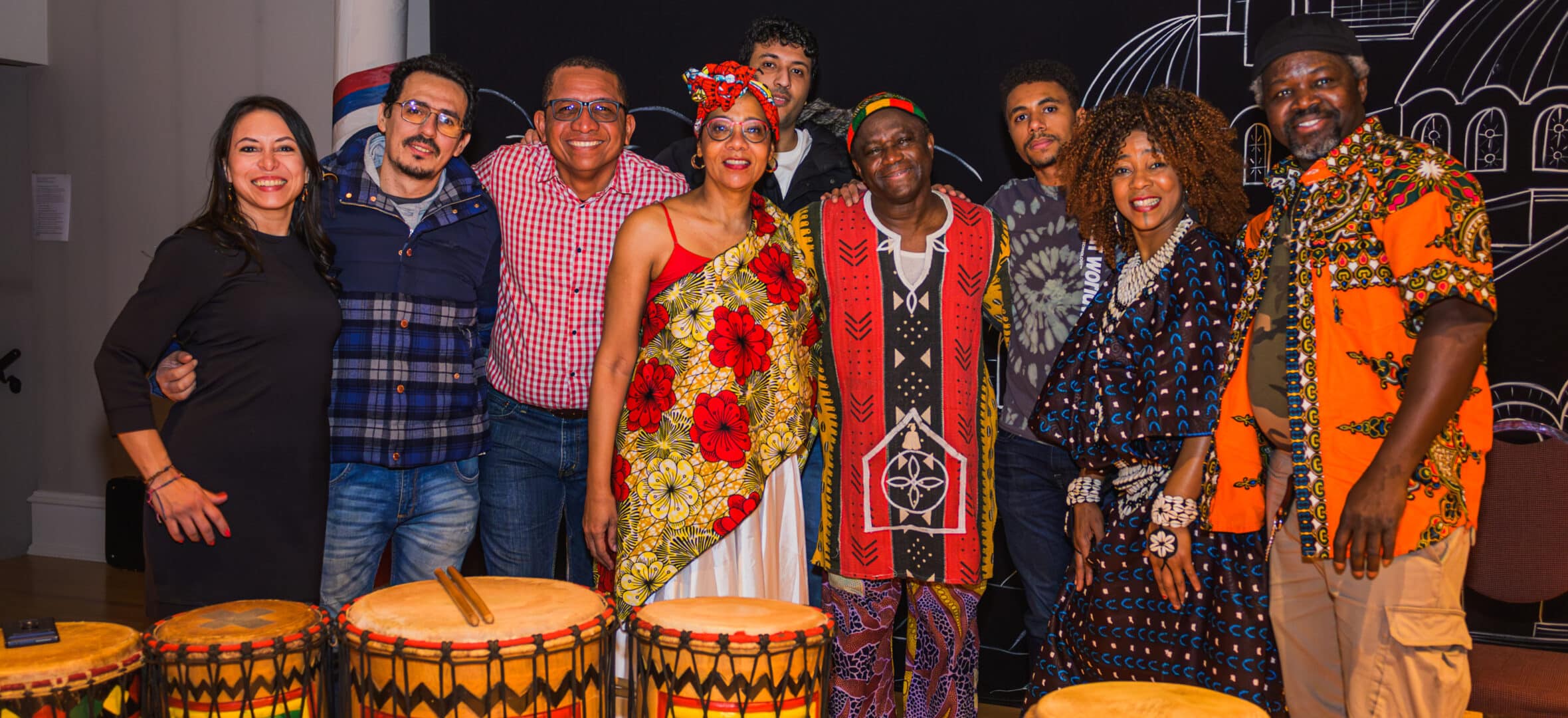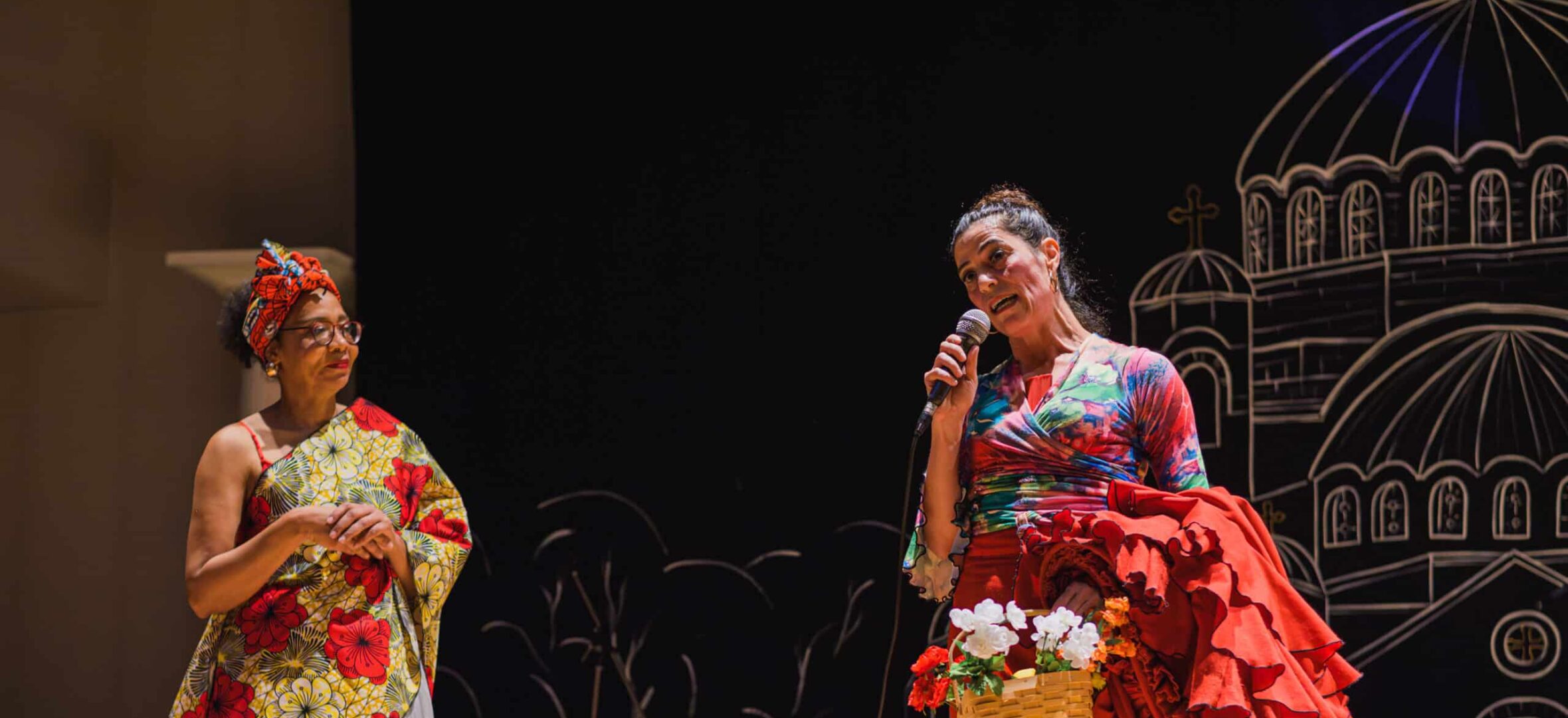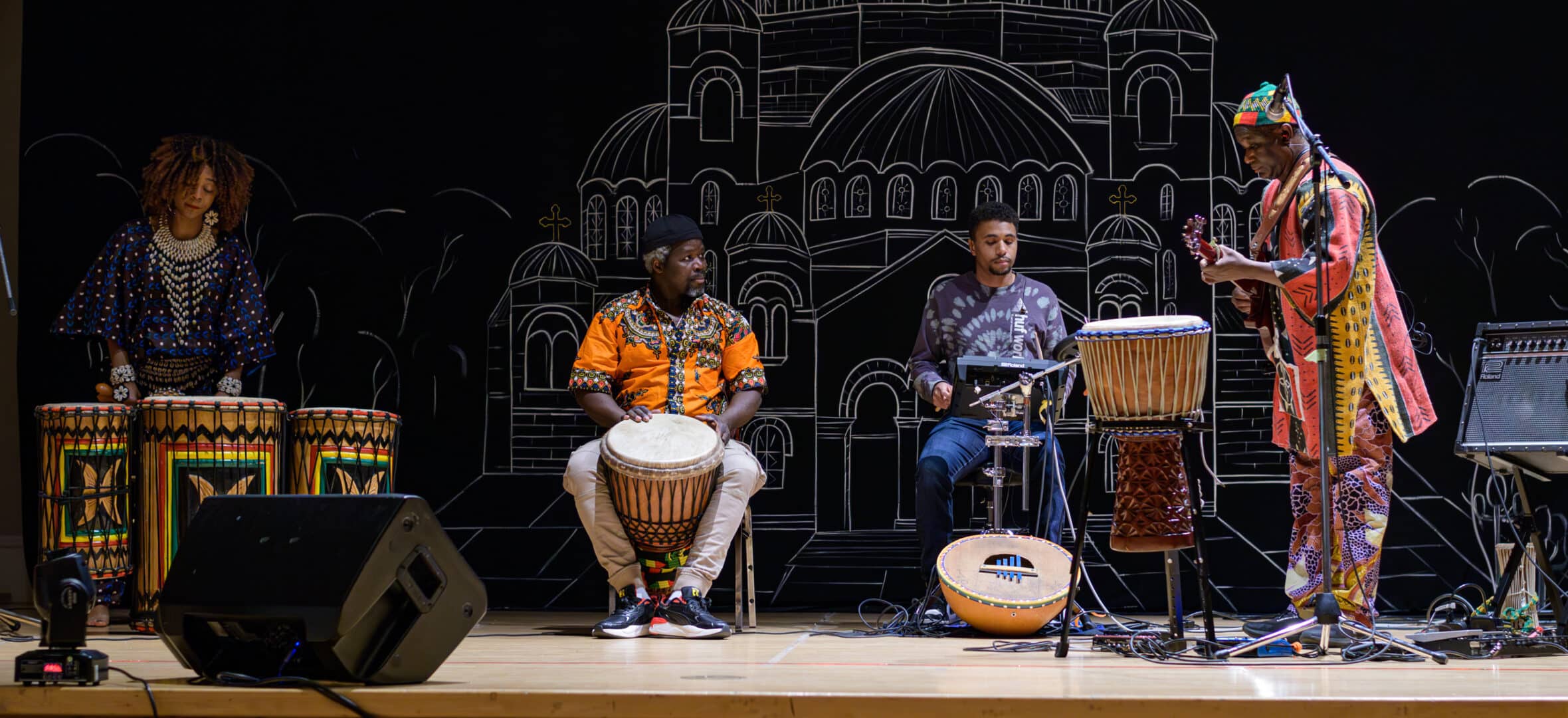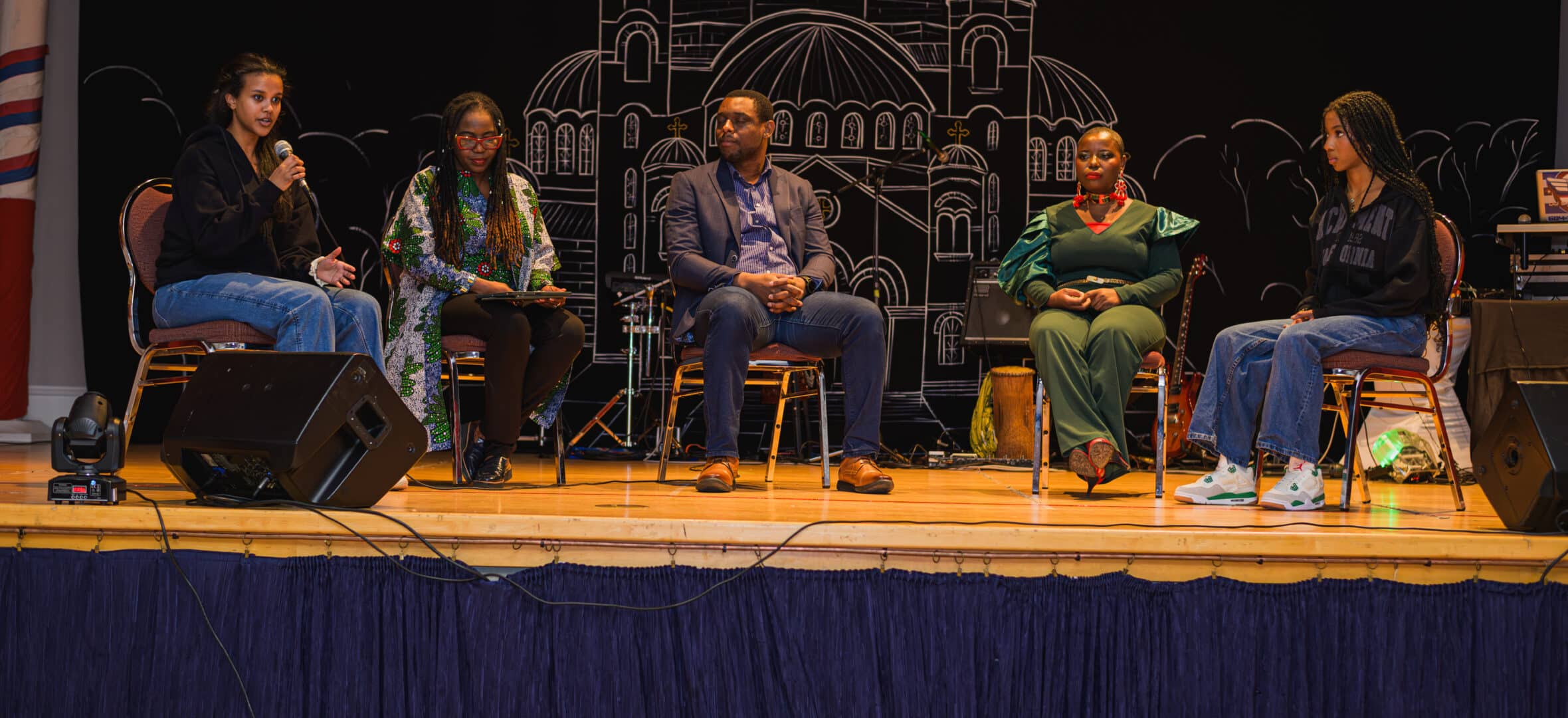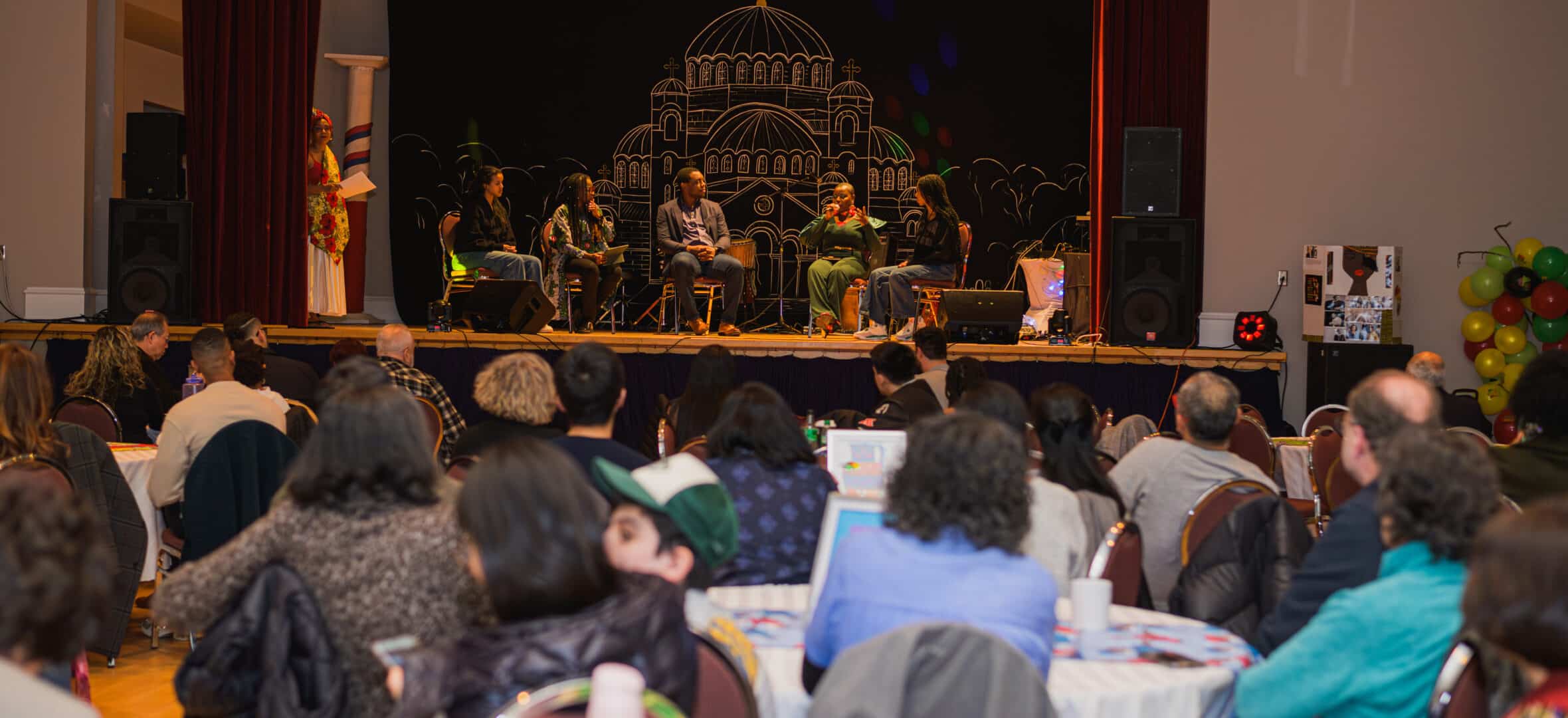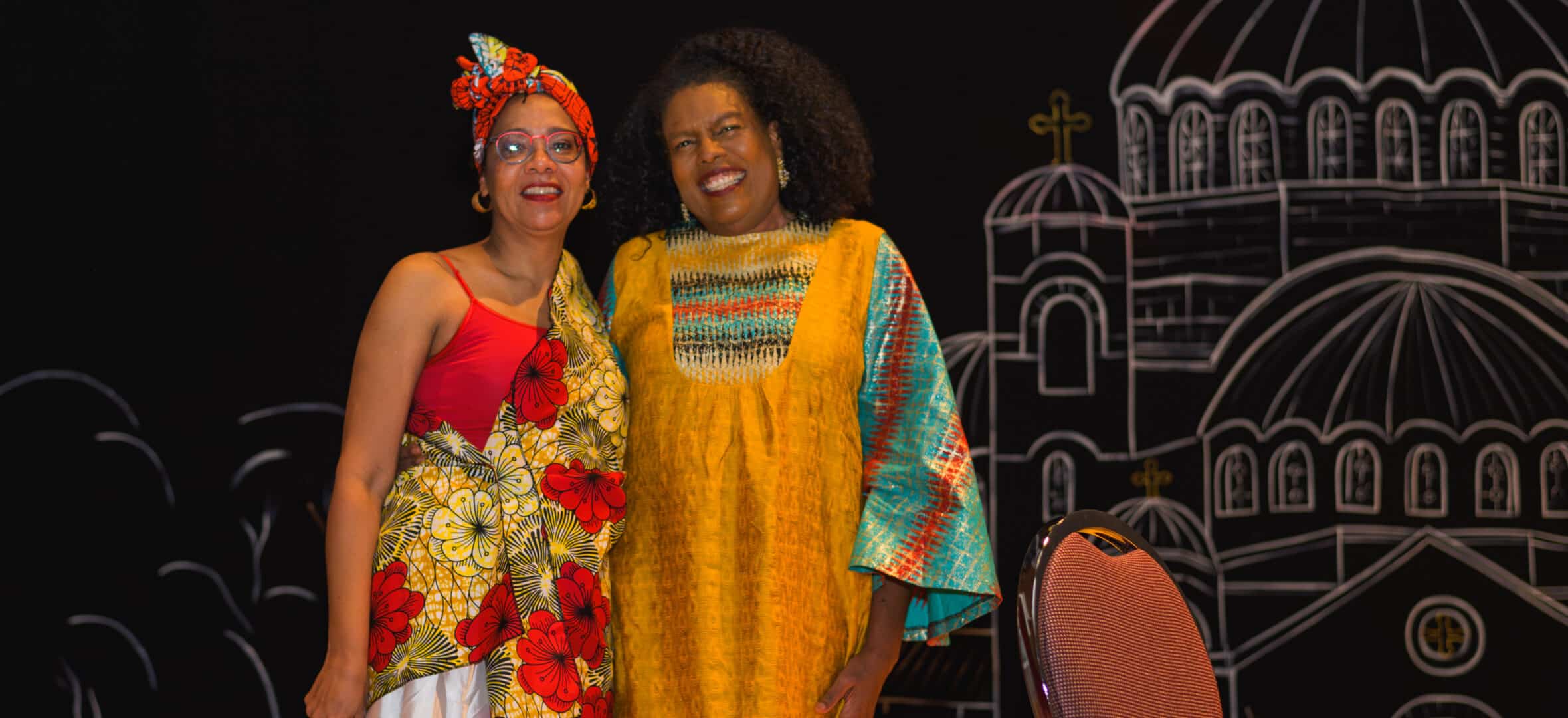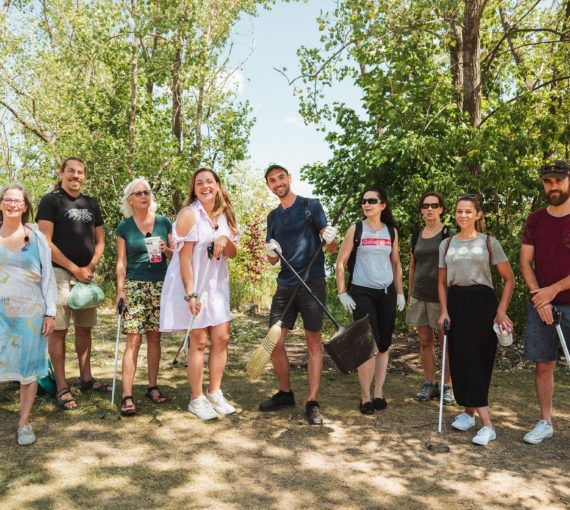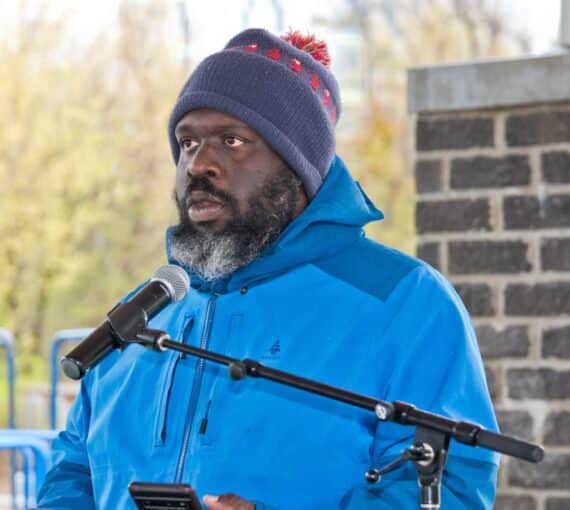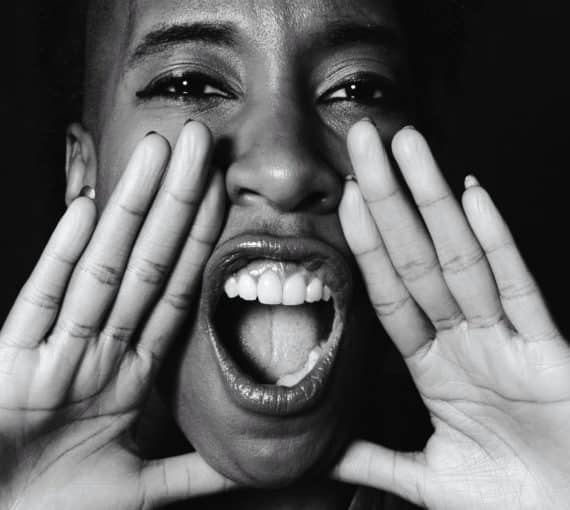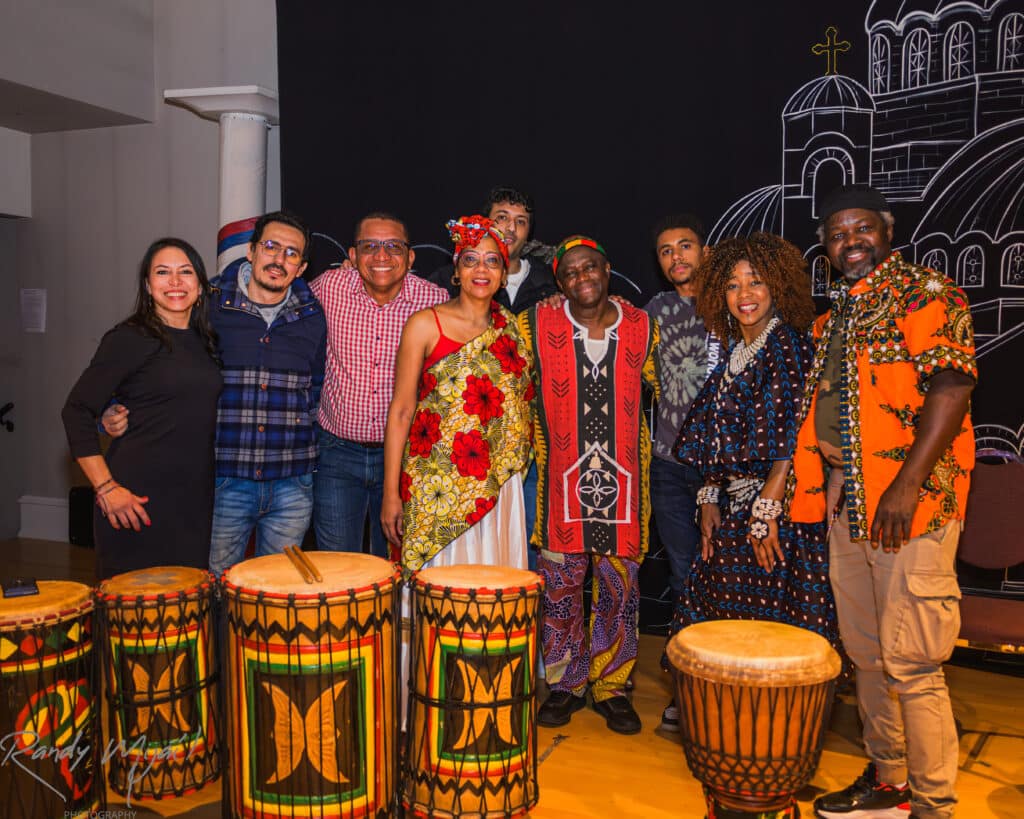
Through art, dance and thoughtful discussions, Alegría Soy illuminated a path toward a future free of poverty, marginalization and inequality, where every individual is respected, celebrated and afforded equal opportunities. (Photo: Randy Mijail)
Future Ground Network member group Alegría Soy seeks social justice through celebration of arts and culture. The group did that at its Afro-Caribbean Folklore celebration in honour of Black History month in Burnaby in February.
Alegría Soy founder Doris set the stage for the engaging evening by emphasizing that “diversity without inclusion is not diversity, and inclusion without economic advancement is just an illusion.” These welcome remarks perfectly highlighted the group’s mission to be part of the solution.
We have a civic movement, working from the bottom up! And we know that the greatest transformations around the world come from communities getting together, identifying what their needs are, and the organizations and the institutions instead of continuing marginalizing those groups, they show up at an ethnical level and say, “We are going to support you.”
Doris, founder of Alegría Soy
Burnaby Mayor Mike Hurley attended the event and affirmed his commitment to Alegría Soy’s mission. He made it clear he recognizes the importance of ongoing collaboration and advocacy. “Keep on pushing because that is the only way things get done,” he told Doris. “We will continue listening to you and working with you.” His words conveyed a shared dedication to bringing about positive change and a willingness to work with grassroots groups like Alegría Soy to address community needs. This kind of partnership between civic leaders and local resident-led initiatives is crucial for fostering inclusive and responsible governance.
A historically suited setting
The event was held in Edmonds, in the southeast of Burnaby, British Columbia. MP Peter Julian noted how appropriate it was for the event to be held in one of the most ethnically diverse neighbourhoods in British Columbia, if not Canada. Julian also highlighted the area’s connection to Rosemary Brown, the first Black woman to be elected to a provincial legislature in Canada and first to be appointed to a cabinet position. She represented Burnaby-Edmonds from 1976 to 1986 after serving as MLA for Vancouver-Burrard from 1972. Rosemary Brown was a vocal advocate for social reform and supported marginalized groups. She championed causes that sought to address systemic injustices and promoted equality for marginalized communities. Her commitment to social justice was unwavering and she used her platform to address issues such as economic inequality and educational disparities Black Canadians and other minority groups faced.
It was clear throughout the event that Doris’s commitment to social justice in Edmonds echoes the same powerful spirit of Rosemary Brown’s advocacy. Her group is following in Brown’s footsteps by actively engaging for the rights of marginalized communities by addressing social inequalities.
The event also featured a powerful welcome from K’ána Deborah Baker, a member of the Squamish Nation council and survivor of the residential school system. One attendee remarked that her “peace permeated every corner of the hall.”
There cannot be social justice for any group, unless we first acknowledge the devastation done to the First Nations.
Attendee
Art as a platform for expression and connection
Art featured prominently at the celebration. Visual artist Ricardo Hernandez shared his drawings (for the first time in an exhibit!) reflecting his identity as an Afro-descendant from the Dominican Republic. His art aimed to capture the essence of the lives, struggles and resilience of the African diaspora.
I believe that art has the power to educate, inspire and provoke change. By delving into the past and examining how it has shaped our present, I hope to shed light on the importance of cultural diversity, equality and the continuous fight against discrimination.
Ricardo Hernandez
His exhibit invited viewers to join him on a journey through time, exploring the ongoing transformation and envisioning a future when all individuals are respected, celebrated and afforded equal opportunities.
Attendees shared how the art moved them. One guest reflected, “The two drawings of the child and the young girls really spoke to me. It gave me hope for the future! Regardless of the devastation of the past and still the many challenges that people of African descent face, their resiliency and determination will drive them to success.”
The event featured performances from Edmonds Dance Groups Las Divinas, Elegancia Cubana, Lili Flamenco and African Masters. The captivating performances highlighted dance as a tool for social change. The audience joined in the movement and rose to dance together.
“Loved the dancing. I was able to relax and dance as the children had lots of activities.”
Attendee
The importance of youth engagement
Educator Joann Anokwuru led a panel featuring five youths from the local Black community. Three were PhD students at the University of British Columbia and two were high school students from the local community school.
The panel was guided by two principles: ubuntu and sankofa. “Ubuntu” is an African word that describes the interconnectedness of individuals: “I am because you are; you are because I am.” “Sankofa” comes from the Akan people of Ghana and means to look at the past to ascertain the present and plan for the future.
The two guiding principles steered the panel as the youth explored the past and present and envisioned a future with equal opportunity for all.
A call to action
Alegría Soy’s Afro-Caribbean Folklore Celebration was not just a celebration; it was a call for action. Through art, dance and thoughtful discussions, Alegría Soy illuminated a path toward a future free of poverty, marginalization and inequality, where every individual is respected, celebrated and afforded equal opportunities. The echoes of this celebration will undoubtedly resonate and inspire ongoing conversations and actions for a more inclusive and just society.
This event is a testimony of the perseverance of people of African descent, and there is no one more perseverant than Doris. I am committed to supporting Alegría Soy and its work.
June Francis, chair of the anti-racism data committee, co-founder of the Co-Laboratorio, associate professor and director of the Institute for Diaspora Research and Engagement at Simon Fraser University
Join a group near you!
Future Ground Network supports local groups taking action in their communities to secure healthier, more viable futures.
